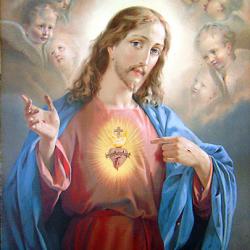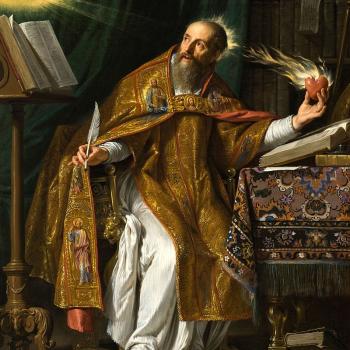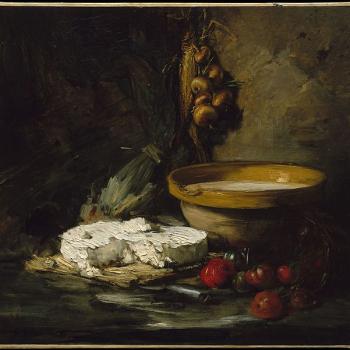Modern Christianity in its cheerier forms, consists in a broad chorus of Catholic thinkers, who want you to Focus on articles that make you think, and not just react.
Our litany of saints and good Catholic writers reveals the manifestation of God’s hope for each of us, to be fully rendered as who we were called to be.
Good writers like holy saints want their brothers and sisters to be able to fix their eyes on the Lord with unwavering attention with the art of Medieval Peasanting and to engage in conversations with others and also with a mutual willingness on the part of the conversation partners to find common ground.
We find common ground when we communicate the love of God and say it loud and clear in our writings. Good Catholic writing will sometimes remind us that I am not a good Catholic and I need to pray for the grace to be better. In writing sobering truths it is good to Be respectful, but firm. The lack of respect fuels anger on both sides.
This particular blog post with lots of recent cleaver blog quotes, like all writing reminds me that the development of a piece can occur in surprising, sometimes in even seemingly impossible ways. We (just like all good Catholic writing) are all first and foremost, and in deeply constitutive ways, oriented to the ultimate Good, which is God.
Hopefully what we read will help us towards that end. When we write or when we pray do we actually think to write or pray for our potential readers that they too might escape the fire and brimstone that awaits those who purposely say no to their ultimate good?
I have some thoughts to share with you. I have pressed it down into a thin layer of a few words and quotes into a sort of Catholic Readers Digest.
Enjoy the challenging, delightful and creative ideas and wonder, that I have compiled for you to ponder and see and think of.
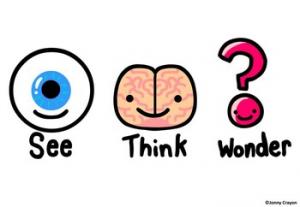
The other night as I was scrolling Facebook, while watching the Netflix movie ‘The Woman in the Window’ with my wife, this article caught my eye. So, I paused the movie and read it to her.
Modern Christianity in its cheerier forms, combined with our own naïveté, doesn’t prepare couples well for the possibility — the probability — that one spouse will get seriously ill when the other’s still healthy. Modern Christianity is almost always cheery. Good marriage counseling tries to prepare the hopeful young couple for loss, but I think that message tends to get lost in all the talk of how wonderful marriage is and all the lovely visions of the future the couple is encouraged to dream.
I write after almost forty years of marriage. When we got married, we didn’t really understand that life has a trajectory. We didn’t really understand that life has a downslope, and that while there are blessings on the downslope unavailable to those on the upslope, that life comes with losses that are just losses. Almost everyone we knew was just as naive, even the older and more realistic. In theory, we understood it. It’s one of those truths one can accept without understanding it, like knowing the formula for the theory of relativity without having a clue what it means. In practice, not really.
When the priest says “For better or worse?” we said “Yeah!” without knowing how worse, worse can get. It’s all part of the romance of getting married, the wild throw of the dice, the great gamble, the defiance of caution and calculation, the commitment to go down with the ship whenever it goes down. And rightly so. But.
David Mills,Why Men Leave Their Dying Wives (June 29, 2021) – Catholic Herald

It was an article that the author, A FB friend and sometimes reader of my own blog, put a lot of heart and soul into writing. So I thought it would be worth sharing because it was a good thought provoking essay and I like sharing wonderful bits of great writing with other people. It’s what I do as a Catholic blogger. As I was thinking of the best way to share David’s latest piece, I thought of some of the other recent articles I have recently come across and thought why not compile a post of recent stuff I have read into one digestible blog post? Because….
The diversity of thought within Catholic teaching, like variety within the strictures of sonnets, is one of its most beautiful features. It is nevertheless important to listen, as much as we can, to a broad chorus of Catholic thinkers. I have found great consolation in the fact that someone holier and smarter than myself has likely asked my questions already; my job is to find them and to listen, and then to make as many people as possible read block quotations about it.
Sharon Kabel , OSB vs. UFO: Stanley Jaki and the Theology of Aliens (June 16, 2021)- OnePeterFive
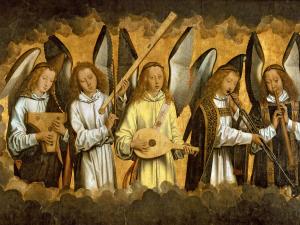
Sometimes finding good stuff to read can also be like a wild throw of the dice. So here are some samples of recent Catholic thoughts for you to chew on that I found interesting, intriguing and I cathing . If you like what you glance at here, click on the link and read more. It’s good to veer into the minds of other Catholics and read good thoughts that challenge and encourage us because…
The very medium of the internet can foster toxicity by its nature, and Catholics are not immune to its effects. By encouraging a constant stream of mostly mindless commentary, the internet—and particularly social media—makes it easier to shoot off a quick insult than to spend time crafting a well-thought-out detailed rebuttal.
It is better to…
Focus on articles that make you think, not just react. Further, the internet is fundamentally a pseudonymous medium. Even someone like me who uses his real name and photo on social media is still somewhat pseudonymous to others online. After all, what do you really know about someone who you’ve only encountered on the internet? And of course the most vicious commentary usually originates with those who make themselves truly unknown by using a fake name and avatar. That sense of anonymity breeds toxicity. Suffice it to say, it’s a lot easier to call a stranger a heretic while using a pseudonymous account from the comfort of your basement than saying it to the person’s face after Mass. ERIC SAMMONS, The Scourge of Toxic Online Catholicism (JUNE 11, 2021) (crisismagazine.com)

We’re destined to spend eternity with most of the people we fight with online.
The disputes run across the spectrum: which form of the mass, how do we fight against the tide of the time? The music must be just so. How we must receive? Who can receive? What is the role of the laity? What is the role of the Catholic school? The Catholic hospital? The Catholic University? Catholic art? Left or right? Fr. Martin? Bishop Baron? Register or Reporter?
The fights on the internet over who is good and who is bad, which bishops are holy and which should be excommunicated, over the Pope, over the pundits, over all of it remind us that we are very good at pretending we know what’s best for everyone else. We’re very good at repeating the mistakes those who said, “there is no room in the inn,” made when offered the opportunity to host the Holy Family. The Catholic church is to be universal, both and, not a clone club or a cult, where our personalities are trampled beneath rules.
Our litany of saints reveals the manifestation of God’s hope for each of us, to be fully rendered as who we were called to be. We do not follow Christ by demanding everyone else follow us. We follow Christ by following Christ. –Sherry Antonetti, Catholics Should Not Be Thinking “Katy, Bar the Door.” (patheos.com)
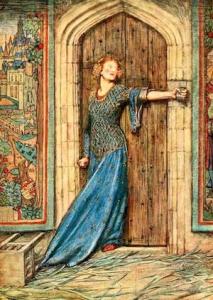
Sometimes because of all the negativity one finds online, one might just be tempted to practice Medieval Peasanting.
Medieval Peasanting” means reminding myself that there once existed Catholics who couldn’t read or write and who never strayed more than 10 miles from the place where they were born. They had some vague notion that the Holy Father lived in a far off place called Rome and they ought to pray for him every day. They said their prayers and did their best to obey the commandments, and when they failed, they repented. That is how they lived their faith. When they had the chance, they received Jesus in the Eucharist with glad hearts and gratitude and fear of the Lord. And so should I.
This mental image is, I realize, an idealization of medieval life. Medieval people, peasants and everyone else, were not automatically holy simpletons just because they didn’t have the internet. They were just as prone to vanity and pettiness and selfishness and idiotic mind games as I am. Where I have the distractions of trolls and Twitter ratios and doomscrolling, they had the distractions of toothaches and fleas and runaway infections. Just because they were disenfranchised, that doesn’t mean they were magically able to fix their eyes on the Lord with unwavering attention. But they were supposed to try. And so am I.
Simcha Fisher, Sick of the Bishops vs. Biden Controversy? Just log off and practice your faith like a Medieval peasant. (June 21, 2021) | America Magazine
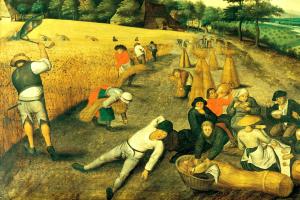
But even thou unplugging and plowing your own modern version of a field is a necessary thing to do, sometimes…
it is important to engage in conversations about complex and even controversial subjects using our faith and intellect.
Gloria Purvis –Catholics: Don’t be afraid to engage with controversial ideas (even Critical Race Theory) (June 29, 2021)| America Magazine
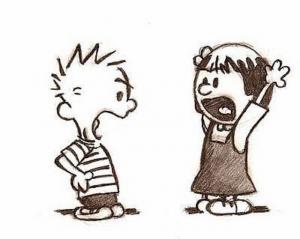
This is what David Mills and all these others try to do with their writing. One online Catholic who specializes in this type of writing is Bishop Robert Barron. He recently wrote this challenge to Catholic Democrats.
Sometimes, the term “dialogue” is used in a casual sense to signal friendliness and kindness to those with whom we disagree. And if that’s what you mean by the term, then I’m all for it. As Saint Thomas More said to his wife in “A Man for All Seasons,” “whatever can be accomplished through smiling, you may rely on me to do.”
But if the term is taken more seriously and in a more restricted way, then it has to imply a mutual willingness on the part of the conversation partners to find common ground.
So may I offer a challenge to pro-abortion-rights Catholic politicians and may I be very specific? If you’re truly interested in dialoguing with the church on this crucial matter, show a little profile in courage and support born-alive legislation. If you can take this small step in the direction of protecting innocent life, I’ll know you’re serious about the conversation. Bishop Robert Barron–Bishop: Will Catholic Dems support protections for babies who survive abortion? (June 28, 2021) (nypost.com)
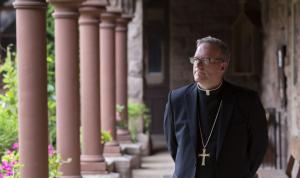
The truly amazing responses by some Catholics that I read to this great post was something like this…
He’s a Catholic Bishop, he should be able to say loud and clear, abortion is murder and an abomination against God. Shame on him.
It’s very true that some people are never pleased unless you say and act completely in the way they think you should act in a given situation. Bishop Barron is in my opinion is the most attacked Catholic personality on the internet, I have come to this conclusion because he is heavily criticized by both left and right alike.
Both left and right leaning Catholics can produce some terrible and wonderful things to say in the public square. And Catholics can hold a variety of opinions about the same topic and both still be in good standing with the church and remain orthodox. Take the Joe Biden communion controversy for example.
Here is a post for not banning communion to pro-abortion politicians.
People have accused me of being an enthusiastic fan of Joe Biden, because I’ve been public about despising his presidential predecessor. The fact is, I don’t like Joe Biden for many reasons– yes, including his stance on abortion, but for several other reasons as well. I didn’t vote for him in the primary, he will never be my first choice, and I have no opinion about whether or not he’s a good Catholic. I only know that I am not a good Catholic and I pray for the grace to be better. But I am irritated about this business nonetheless.
This plan to excommunicate certain politicians to teach us a lesson about the Eucharist, or maybe to just write a document teaching us a lesson about the Eucharist, was one of the topics discussed at the USCCB’s first big meeting after the 2020 COVID-19 pandemic. This was their big meeting after a year of unprecedented historic disaster wherein nearly four million people perished, countless more were disabled, the economy crashed, people lost everything they had, and it isn’t even completely over yet.
Mary Pezzulo, A Word on the USCCB, Who Want To Teach Us About the Eucharist (patheos.com)

Here is a post for banning communion to pro-abortion politicians.
Now, as I write, there is still time for the American bishops to do what many of us orthodox lay Catholics strongly believe is self-evidently the right thing to do, and forcefully assert (with equally crucial enforcement) that Catholic pretender Joe Biden must not receive Holy Communion until he repents of his extreme advocacy of childkilling and even infanticide in some cases. No one will praise them more than myself if this happens.
If that causes a bunch of viciously self-contradictory Catholic Democrats to leave the Church, then so be it. Enough is enough! They have to decide which is more important: Catholicism or [increasingly radicalized and secularized] Democrat Party affiliation (the same holds true, of course, for Republicans or third-party / independent types).
Otherwise, we will be a laughingstock in the general population. We already are, for several other reasons (mostly the sex scandals that have done untold damage to both souls and our image and reputation), but this just makes it worse, because it is so blatantly obvious what the bishops must do.
Pray for them, and write to them. Be respectful, but firm. Dave Armstrong, Cowardly (?) Bishops, Pro-Abort Biden, & Holy Communion (patheos.com)
Whether to deny communion or not is the not so easy question. Cardinal Sean O’ Malley breaks it down.
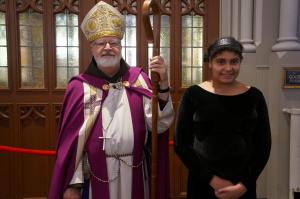
Our Catholics, whether conservative liberal or middle-of-the-road, have been through a lot. I always say that being a Catholic in Boston is a contact sport. The secularization of our culture, the loss of a commonly held Christian anthropology, and now the fallout of the sex abuse crisis have left Catholics shaken in their faith, angry at the bishops and mistrustful of leadership in the Church.
The controversy about the denying of Communion to politicians fuels anger on both sides. If we bishops get caught up in this fight, we can easily give the impression that we are divided in our opposition to abortion, and I do not believe that.
We need to show a united stance on behalf of the Gospel of life and all of its ramifications. If we are divided, we will be weakening the Church, and our ability to promote the Gospel of Life will be compromised. Denial of Communion to politicians will be interpreted by most Americans and Catholics as partisan politics that has nothing to do with reverence or piety.-The Pro-Life Vision of Cardinal Sean O’Malley | Mark Wilson (patheos.com)
If only Democrats accepted the fullness of life into their vision of caring for the human person.
One common pro-choice talking point is the assertion that an acorn is not a tree. The pro-life response is that a tree and an acorn are the same organism, but in different stages of development. The Catholic position is that fetuses, embryos, and zygotes are human persons in the early stages of life, whereas pro-choicers will insist that these are mere “clumps of cells.”
The development of the human body from its beginning as a single-cell zygote to a fully-formed adult attests to how development can occur in surprising, sometimes in even seemingly impossible ways. The Catholic Church teaches that throughout all these stages of life, a human person is endowed with a soul, personhood, and inviolable human dignity. Despite dramatic physical changes, the human being retains what Newman calls “unity of type.
The flight of the doctrinal butterfly | (June Where Peter Is
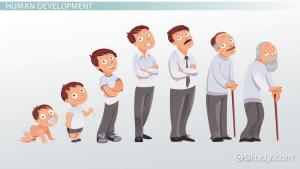
Our development and understanding of the Catholic faith is always growing. This will sometimes result in different opinions that are familiar and uncommon yet if faithful to the authority of the church, still orthodox and worth listening to. It might cause you to think and ask ‘What the Hell?’
The Church has always rejected the view that we can know for certain that anyone in particular is in Hell and has even included prayers for the salvation of all, without qualifications, in both her Eucharistic liturgy and in the Liturgy of the Hours. Furthermore, what has most definitely not been condemned is the notion that we can hope for the salvation of all. Thus, the real debate in these matters resides in the breadth and depth of what it is that we are allowed to hope for with regard to salvation. We are made for Heaven and not for Hell and in a proper Thomistic theological anthropology we are all first and foremost, and in deeply constitutive ways, oriented to the ultimate Good, which is God. The options are not equal and God has stacked the deck in the direction of salvation and therefore, at the very least, the path of deep hope for the salvation of all is more in keeping with a Thomistic theological anthropology than is the contrary view that most will eventually end up in Hell.
-Larry Chap, Balthasar’s “Dare We Hope That All Men Be Saved”: A Defense. – Gaudium et Spes 22
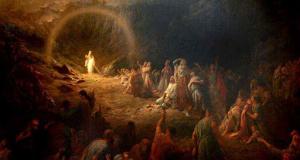
Thus we must hope in charity that all souls go to heaven especially those in most need of thy mercy.
We also know that the Church condemns no one. While there are official lists of names compiled of the saints and martyrs whom we are to pray to, she has no counterpart for those who have chosen not to go there, preferring an eternity of loss in the company of the demons who first took themselves to Hell. But we simply do not know who they are, nor how many, which leaves us free to hope for the salvation of all.
Meanwhile, the tendency among many on the subject, is to think only of themselves, and perhaps — after suitable and pious pause — a family member or two. And while most people may not, in the manner of Tertullian, contemplate with pleasure the prospect of our enemies roasting in Hell, how often do we actually think to pray that they too might escape the fire and brimstone? Does it not occur to us that not to do is a failure, not just of charity, but of hope?
Because the thing about hope is that until it includes everyone, it cannot include me. Jean Danielou, in a stunning passage written many years ago, reminds us that “hope essentially bears on the great actions of God concerning the whole of creation. It bears on the destiny of all humanity. It is the salvation of the world that we await. In reality hope bears on the salvation of all men — and it is only in the measure that I am immersed in them that it bears on me.”
-Regis Martin, Hell Is Real, So With Hope We Pray: ‘Save Us From Final Damnation’| National Catholic Register (ncregister.com)
My wife thinks my posts are too long, so I’ll end here with one of the most profound thinkers I find writing in cyberspace today. In this final quote it is pondered what words and quotes be remembered from your readings.
When you find a fossil fish or plant there is often an extremely thin layer of black stuff. That is the carbon from the original organism squeezed into the rock that bears the image of the critter. All that’s left of a whole life.
I wonder how many authors have ever aspired to be *so* influential that their books are never read by anybody, yet millions live under the strange delusion that they have read them. You know, Aristotle, Darwin, Marx, Thomas, etc. There are a specialized circle of books out there that millions and millions of people are sure they read at some point, yet almost nobody could remember five words from if their lives depended on it. It’s like when Tevye quotes “the Good Book” and it’s whatever proverb happens to pop into his head, never actually coming from the Bible (another book millions of people imagine they have read). It’s odd how humans compile knowledge and tradition and sort of press it down into a thin layer of a few words and quotes out of a whole civilization’s worth of life experience. -Mark Shea





